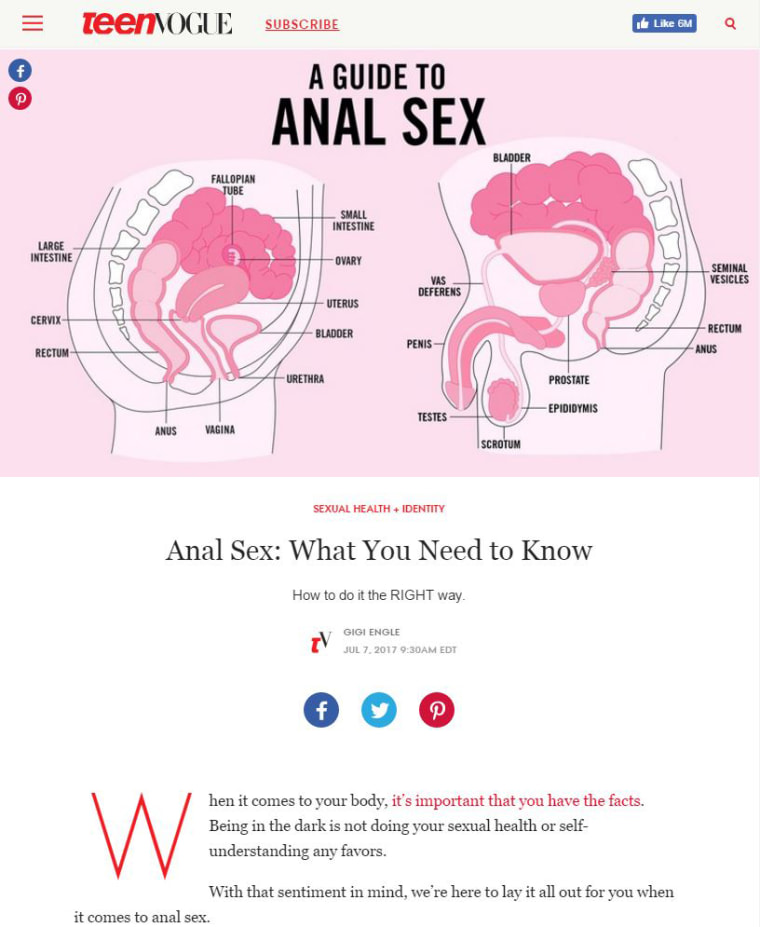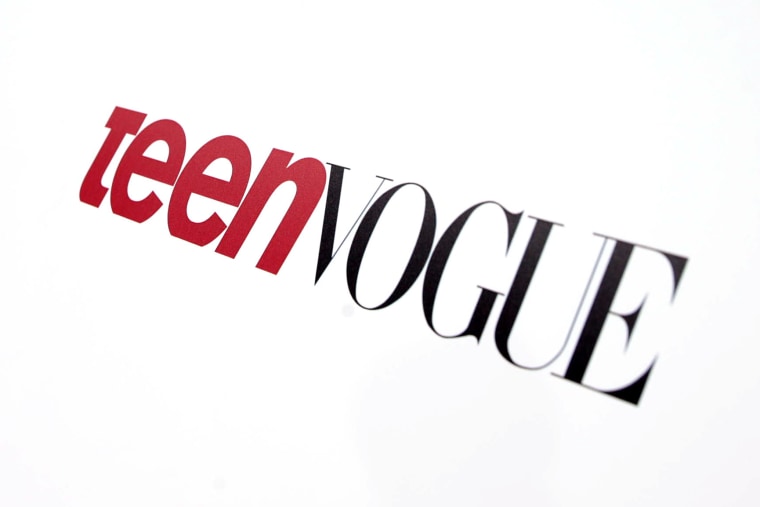Earlier this month, Teen Vogue published "A Guide to Anal Sex" on its website. The article, which informs readers "how to do it the right way," spawned a conservative backlash that is still continuing weeks later. The controversy, however, has also given rise to a frank conversation about the state of sex education in the U.S.
Calls to cancel subscriptions to the publication reverberated across social media under the hashtag #PullTeenVogue. Many of the responses were vehement.
One activist, dubbed “The Activist Mommy,” filmed herself burning a copy of the magazine in a campfire while condemning the Teen Vogue editors for having their brains “in the gutter.” It should be noted, however, that the controversial guide did not appear in the publication's print edition.
Phillip Picardi, the digital editorial director at the publication, wrote a tweetstorm on the subject in which he defended Teen Vogue’s decision to publish the guide, which included illustrations and diagrams of a penis and a vagina.
In his thread, Picardi highlighted why he feels it’s important for young people to receive sex education.
Through a Teen Vogue publicist, Picardi declined to provide NBC News with a comment on the anal sex guide and the controversy that followed its publication.
The guide was not geared exclusively toward LGBTQ readers but did incorporate gender-neutral language, such as “vagina owners” to be inclusive of transgender men. Teen Vogue has employed such inclusive language in past articles.
Regardless of where one might fall on the debate, the ensuing dialogue has given sex educators and LGBTQ advocates a chance to highlight the dearth of sex education in the U.S.
“Many if not most young people — both hetero and LGBTQ — feel the sex ed they’ve received in school was not sufficient, and that’s especially true for LGBTQ young people,” Dr. Michael Newcomb of Northwestern University’s Institute for Sexual and Gender Minority Health and Wellbeing, told NBC News. “A vast majority of states, jurisdictions and districts do not provide LGBTQ-inclusive sex education.”

Dr. Newcomb referenced what are colloquially known as “no promo homo” laws that legally prohibit public schools from teaching about LGBTQ sexuality in sex education.
“The typical statute is that you can only talk about LGBTQ sexuality as a morally incorrect approach or as a risk factor for acquiring HIV,” Dr. Newcomb said.
According to the Gay, Lesbian and Straight Education Network (GLSEN), there are currently eight states with these kinds of laws in place: Alabama, Arizona, Louisiana, Mississippi, Oklahoma, South Carolina, Texas and Utah.
“The 'no promo homo' amendment is a ‘don’t you dare’ amendment,” said JD Davids, director of partnerships at thebody.com, a digital HIV/AIDS resource guide. “The fact it remains on the books is very problematic. So anal sex isn’t being talked about. But Teen Vogue is talking about it. They shouldn’t be alone in this.”
Davids also stressed that “straight kids are having anal sex, too."
“We think of it as an LGBT issue, but research shows that, in part, anal sex is a power and cred[ibility] issue with heterosexual youth, where boys want to say they’ve done it with girls,” he said. “Education about anal sex isn’t coming through schools, they’re not getting it."
Dr. Newcomb said there are many gaps to fill when it comes to completing the education young people — particularly those who are LGBTQ — never received in school or from their parents. HIV, STIs, unintended pregnancy and sexual assault are just some of the risks that accompany a lack of knowledge, according to Newcomb, and he said guides like the one Teen Vogue published could be incredibly helpful.
“It’s important that there are outlets like Teen Vogue providing information like this,” he said. “They did a really nice job. We need sex ed to be accurate and not heteronormative so it’s acceptable to everyone.”

